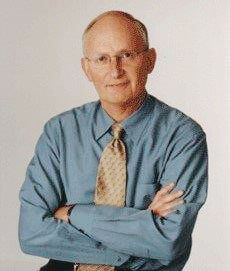The Hebrew lunar calendar is in the month of Elul. For Jewish people, it is the time for spiritual renewal and self-introspection. The Jewish New Year (Rosh Hashanah) is only days away. One cannot know what one can accomplish in the year ahead without knowing the powers and temptation inside our own heart.
Jewish tradition suggests that the very name of the month of Elul is an acronym formed from the first Hebrew letters of the well-known Song of Songs verse “Ani l’dodi v’dodi li” (“I am to my beloved, and my beloved is mine.”).
The ancients understood the Songs of Songs to be an allegorical love poem reflecting the relationship between the individual and God. Jews return to the synagogue during the High Holy Days to affirm this relationship of mutual dialogue that forms the basis of a holy life.
How does one prepare for spiritual renewal? Rabbi Israel Salanter, the founder of the 19th century Musar movement which stressed personal morality, kept totally silent during this 40-day period.
He spoke to no one and was thus able to focus his entire attention to the repair of his inner self without having any distractions.
Some of Salanter’s students fasted during the daylight hours. These ancient modes are likely not to be the choice today. Instead, the custom in the synagogue is to read Psalm 27 with its well-known verse “One thing I ask of God, only this do I seek: to live in the house of God all the days of my life, to gaze upon His beauty and to frequent God’s Temple.”
In addition, the shofar, the ram’s horn is sounded at morning worship services. It is the wake-up call, a reminder that this is the time to begin to think about our mistakes and offer penitence for our sins.
The Hasidim have a particularly rich metaphor for the month of Elul, describing it as the month in which “the king is in the field.”
The king represents God, and the “king” in the metaphor is returning from one of his trips throughout the kingdom to see first-hand how his subjects are faring.
As he returns to the palace, he walks through the fields, accessible to all of his subjects, whether they are rich or poor, wise or simple. Everyone can approach him and submit any special requests they would like the king to consider.
The king’s assistants are present to record these requests and to make sure that they are reviewed favorably when the king returns to his palace. The entire kingdom is encouraged to take advantage of this special opportunity for a personal encounter with the king. Once he returns to his palace and he is back in his official capacity as ruler of the kingdom, the regular protocols for meeting with the king will once again be in place. Anyone who seeks access to the king after he has returned from the field will need to go through a much more formal process, requiring all kinds of security checks before he or she can be ushered through the many rooms that lead to the king’s private chambers.
This imagery is meant to encourage the Hassidic followers to see the month of Elul as a time for sincere and productive self-assessment. According to the King-in-the-Field metaphor, one is encouraged to think and reflect on one’s experiences during the past year, whereupon we can submit one’s most personal requests for Divine blessing and success in the year ahead.
Here are some of my suggestions for you to make a new beginning.
• Write a letter to someone you know you have hurt in the last year.
• Resolve to abandon one bad habit.
• Study at least one line of Torah. (Five Books of Moses)
• Learn one new prayer.
• Make a plan to improve one way you relate to others.
God will take note of our repentance, study, prayer and loving acts, and will join us in our efforts to perfect our precious world.
From the beginning of Elul, it is already customary to use the greeting “shanah tova u’metukah” (a good and sweet year.)
May you all be inscribed for a good and blessed year. Wishing you a new beginning and days ahead that will be filled with joy, health, happiness and meaningful change.
Rabbi Ron Isaacs is the rabbi at Beth Judah Temple, Wildwood. He invites questions emailed to his website www.rabbiron.com








